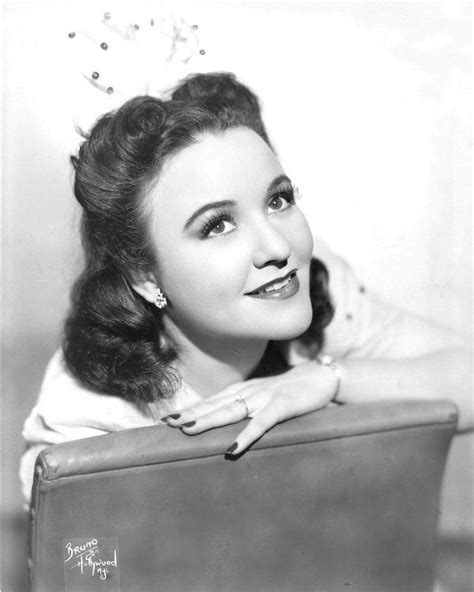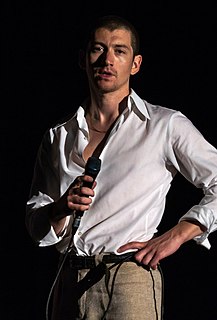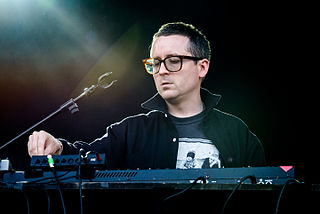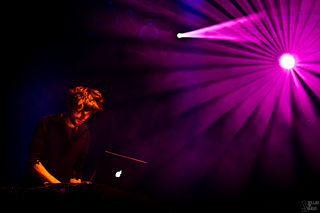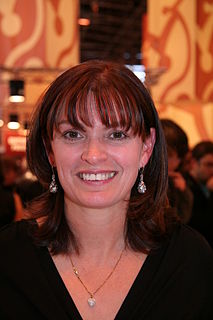A Quote by Paul McCartney
The most important ingredient to making a song work is the magic. You've got a melody, you've got words, but on the more successful songs, there's a sort of magic glow that just happens and you can feel it happening. It just makes the songs sort of roll out.
Related Quotes
I kind of miss writing songs the way that I used to write songs, in the sense that I would just sit down, and all these words that told a story would come out. There's one Bon Iver song called 'Blood Bank' that is more representative of an older lineage of songs, which I like and I sort of miss. But it just doesn't happen anymore for me.
I write some crappy songs. ... but every once in a while I get just the right words put together for the right moment, and it feels like magic. There is no explaining the magic. It floats in and then just like that, it floats out. There's no amount of money that will buy magic. I've watched myself try to coax it, but it is only when I relax and totally allow magic to envelop me that it has ever been kind.
I saw that something changed in terms of the way I approach writing. I don't know. Before, everything was just sort of pieced together; and more and more nowadays I'll have complete songs - chords, lyrics, a melody - and we'll apply to those songs what we feel is required. That has happened much more on Humbug album than on any of the others.
The Armstrong record that I personally like the most, is a recording of a song by Harold Arlen called, "I Got a Right to Sing the Blues" . Most of Armstrong's solos tended to stick pretty close to the melody. But for some reason, it's like he let go of the tether and suddenly he's playing this beautiful high, almost abstract line that's floating above the beat. I compare it to the way that a 19th century operatic tenor might have sang an Aria because he's just completely let loose of the background and he's making this magic sort of flying above the staff.
I'm quite interested in what words can be, if it's very few words, and it's a kind of club track but it has a sort of uplifting or spiritual kind of feeling to it. Somehow, something bigger than just the words on the page happens when you hear it all together. Sometimes I notice when I'm DJing, I put on a lot of tracks that feature vocals. I guess for me, it's just from growing up loving songs, so maybe I'm geared slightly more towards dance music that features a song element.
I don't really premeditate what I write my songs about; you know, they just kind of happen, and I can't start writing songs to please a certain group of people or propagate a certain message all the time. That's just not how my songwriting works - it just sort of comes out, and the songs are what they are.
When two people meet and fall in love, there's a sudden rush of magic. Magic is just naturally present then. We tend to feed on that gratuitous magic without striving to make any more. One day we wake up and find that the magic is gone. We hustle to get it back, but by then it's usually too late, we've used it up. What we have to do is work like hell at making additional magic right from the start. It's hard work, but if we can remember to do it, we greatly improve our chances of making love stay.
When you sit down and write a song, you kind of have the idea for the song, and you sit there at the piano and you kinda just write it. And then of course later there's some dinking around with it and changing some stuff. But there's this thing that happens when the song first comes out, that sort of magic when it first comes out of the ether, and you can't even really explain where it comes from. That happens so much with music, and people understand that with music. But I really think that a lot of movie and TV should be the same way.
I just do as many songs as I can and then I put it together when I get sort of in the middle, maybe 30 songs, that's when I start really thinking about the name of the cd and what direction all the songs are going, that kind of stuff. But I don't ever want to corner myself, I just want to be able to express whatever I can express in songs and just pick after that.
I think the old school, back in the day, 10 to 15 years ago in music, is like you launch one single and you just let that ride out. Right now, you've got folks like Chris Brown, he just won't let up, he's got mixtape after mixtape, they're playing songs on the radio from the mixtape and then he's got songs on the album and videos and he's got remixes he's jumping on.


